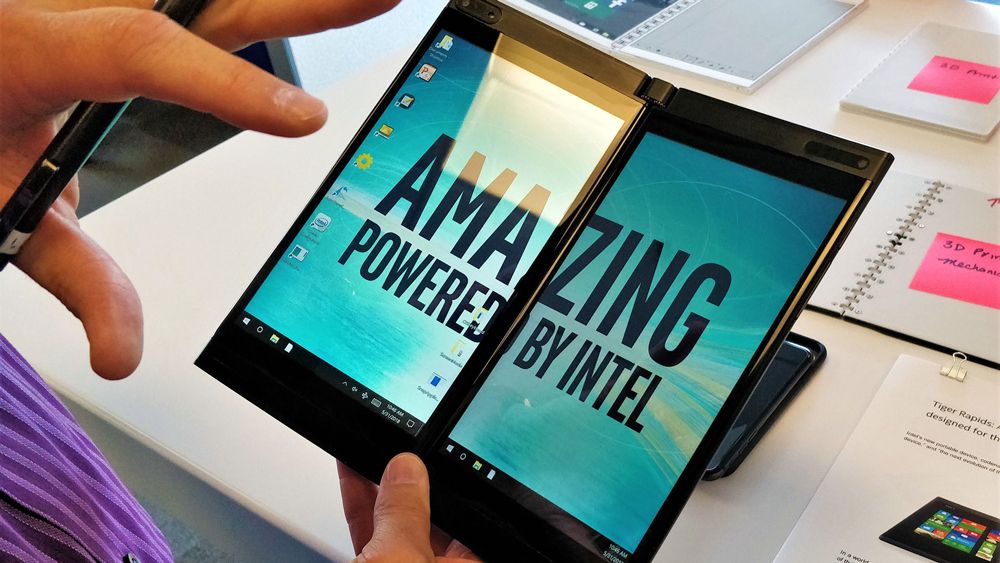Intel creates dual-display digital notebook
And it has two full-colour screens you can draw on.

The future of PCs, as Intel sees it, is starting to turn a few heads.
Introducing Tiger Rapids, the dual-screen digital notebook that could be a game-changer for designers and artists.
Intel has spent approximately two years refining this prototype PC device – the design of which was based on the ever-popular Moleskine notebook – which allows users to do everything from note-taking and presentations, to creating intricate drawings and sketches.
Opening like a traditional Moleskine notebook, Tiger Rapids is super-compact, measuring skinnier than an iPhone 8 at just 4.85mm thick, with each screen sporting a small but mighty 7.9-inch LCD display. It even comes complete with a loop on the right to stash your pen. Powering this lightweight device is a Kaby Lake Core processor, with an undisclosed amount of memory.
For those of you reading this wondering when – or even if – Tiger Rapids will ever be available to the masses, the good news is this is one concept that will certainly be realised. While Intel has no plans to bring it to market, the company has provided the design to select partners, with Tiger Rapids-inspired products from Asus and Lenovo set to be showcased at the Computex computing trade show in Taipei this week.
Could Intel's prototype mean the end of the humble notebook? Watch this space.
[Source: Digital Arts]
Get the Creative Bloq Newsletter
Daily design news, reviews, how-tos and more, as picked by the editors.
Related articles:

Thank you for reading 5 articles this month* Join now for unlimited access
Enjoy your first month for just £1 / $1 / €1
*Read 5 free articles per month without a subscription

Join now for unlimited access
Try first month for just £1 / $1 / €1

Kerrie Hughes is a frequent contributor to Creative Bloq, and was once its editor. One of the original CB crew, Kerrie joined the team back in 2013 after moving from her role as staff writer on 3D World. Since then she's written regularly for other creative publications such as ImagineFX, Computer Arts and Digital Camera World. After a stint working for the police, Kerrie is back reviewing creative tech for creative professionals.